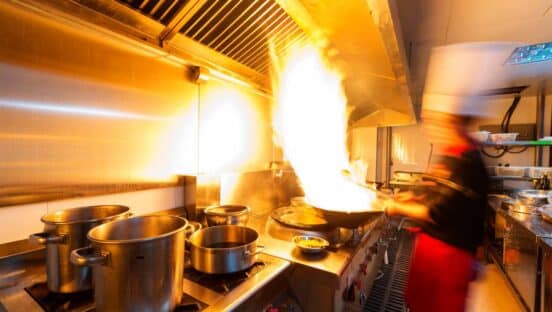The foodservice industry is on the cusp of major disruption by technology. Think about what Netflix did to Blockbuster, Airbnb did to hotels, and Uber to taxis. It’s easy to see foodservice is on the precipice of experiencing something similar. One of the biggest ways the industry is transforming is by how customers place and receive orders.
Large restaurant chains have a distinct advantage dealing with disruption with significant in-house technology expertise and big budgets. But small and mid-size restaurateurs, especially independent quick-serve restaurant and fast-casual owners, need to find ways to use technology to their advantage to acquire and retain customers and reduce costs to ensure their businesses continue to grow and thrive.
New digital ordering apps and self-service kiosk technologies can give independent quick-serve and fast causal restaurateurs a way to compete effectively.
The Problem with Third-Party Delivery Services
Food delivery service apps like Grubhub, DoorDash, and Uber Eats are real disruptors. They provide customers with a convenient way to order and receive food, but they are often a double-edged sword. Proven to increase sales, these services cut into what are already razor-thin profit margins by taking 20 to 30 percent commission for every order.
Besides pitting competitors against each other by displaying them side by side on their ordering apps, third-party services do nothing to promote brand loyalty and customer retention. They do not provide establishments with customer mobile phone numbers, email addresses and order histories directly. They keep data ownership to themselves, charging establishments even more for ongoing customer engagement via offers and rewards.
What Consumers Want
A recent TrendSource survey indicates diners have more interest in using a restaurant’s own app for both delivery and pickup versus third-party apps. Consumers want restaurants to take their money, not technology suppliers. They want to support their favorite restaurant brands.
And today’s tech-savvy consumers want ordering convenience. They don’t want to wait in line to place orders or pickup food. As a result, technology allowing consumers to skip the line are quickly growing in popularity.
On top of all this, consumers want personalized loyalty program offers and rewards. They want deals and connection to the brands they buy from.
Independent Quick-Serves and Fast Casuals Can Compete
Many restaurants are moving toward having their own custom branded digital ordering capabilities and exploring in-house delivery solutions, rather than depending on third-party order and delivery services and antiquated business practices. Their customers are demanding it, their businesses depend on it and it’s where the market is going.
Online store building platforms like BigCommerce, Squarespace, WooCommerce, and more have been around for a while now. They enable custom-branded websites to be built without being tech-savvy or a design guru.
Now the same thing is happening with digital ordering apps and kiosks. New app and self-service kiosk building platforms give independent quick-serves and fast casuals the means to quickly and cost-effectively build and deploy in-demand, digital ordering capabilities to compete with third-party app delivery services and even the largest chains.
Ideally, digital ordering via apps and kiosks should complement existing systems and workflows, integrating with existing order placement and tracking, kitchen preparation, payment processing, delivery, loyalty programs and vendors and more.
Disruption is driving significant change in the foodservice industry. Digital ordering through apps and self-service kiosks are becoming mandatory and critical to business success. With new technology building platforms, quick-serves and fast causals can ride the wave of innovation, too.
Dinesh Saparamadu is a mobile industry thought leader. He is CEO and founder of Applova Inc., a company focused on delivering innovative digital ordering technology. Saparamadu is also CEO and founder of hSenid Group of companies and is chairman of the board of PeoplesHR. He gained significant software and mobility engineering experience with Nokia, Valista, PepsiCo and Aetna and earned his Bachelor of Computer Engineering and Master of Computer Science degrees from the University of Bridgeport in Connecticut. Email Dinesh dinesh@applova.io.













